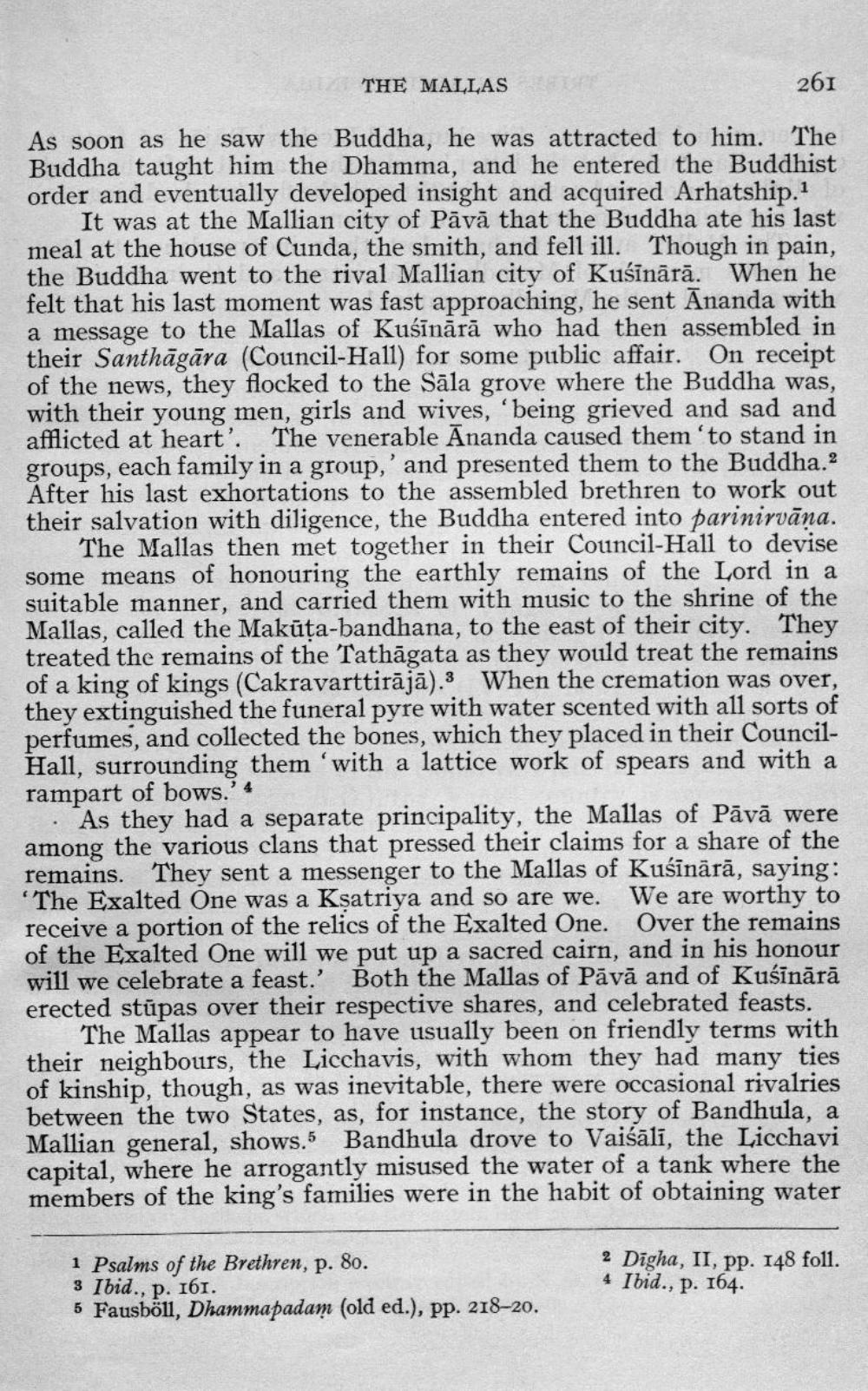________________
THE MALLAS
261
As soon as he saw the Buddha, he was attracted to him. The Buddha taught him the Dhamma, and he entered the Buddhist order and eventually developed insight and acquired Arhatship.1
It was at the Mallian city of Pāvā that the Buddha ate his last meal at the house of Cunda, the smith, and fell ill. Though in pain, the Buddha went to the rival Mallian city of Kusinārā. When he felt that his last moment was fast approaching, he sent Ananda with a message to the Mallas of Kuśīnārā who had then assembled in their Santhāgāra (Council-Hall) for some public affair. On receipt of the news, they flocked to the Sāla grove where the Buddha was, with their young men, girls and wives, 'being grieved and sad and afflicted at heart'. The venerable Ananda caused them 'to stand in groups, each family in a group,' and presented them to the Buddha.2 After his last exhortations to the assembled brethren to work out their salvation with diligence, the Buddha entered into parinirvana.
The Mallas then met together in their Council-Hall to devise some means of honouring the earthly remains of the Lord in a suitable manner, and carried them with music to the shrine of the Mallas, called the Makūta-bandhana, to the east of their city. They treated the remains of the Tathāgata as they would treat the remains of a king of kings (Cakravarttirājā).3 When the cremation was over, they extinguished the funeral pyre with water scented with all sorts of perfumes, and collected the bones, which they placed in their CouncilHall, surrounding them with a lattice work of spears and with a rampart of bows.' 4
• As they had a separate principality, the Mallas of Pāvā were among the various clans that pressed their claims for a share of the remains. They sent a messenger to the Mallas of Kuśīnārā, saying: "The Exalted One was a Ksatriya and so are we. We are worthy to receive a portion of the relics of the Exalted One. Over the remains of the Exalted One will we put up a sacred cairn, and in his honour will we celebrate a feast.' Both the Mallas of Pāvā and of Kuśīnārā erected stūpas over their respective shares, and celebrated feasts.
The Mallas appear to have usually been on friendly terms with their neighbours, the Licchavis, with whom they had many ties of kinship, though, as was inevitable, there were occasional rivalries between the two States, as, for instance, the story of Bandhula, a Mallian general, shows.5 Bandhula drove to Vaiśālī, the Licchavi capital, where he arrogantly misused the water of a tank where the members of the king's families were in the habit of obtaining water
1 Psalms of the Brethren, p. 80. 3 Ibid., p. 161. 5 Fausböll, Dhammapadam (old ed.), pp. 218–20.
2 Dīgha, II, pp. 148 foll. 4 Ibid., p. 164.




